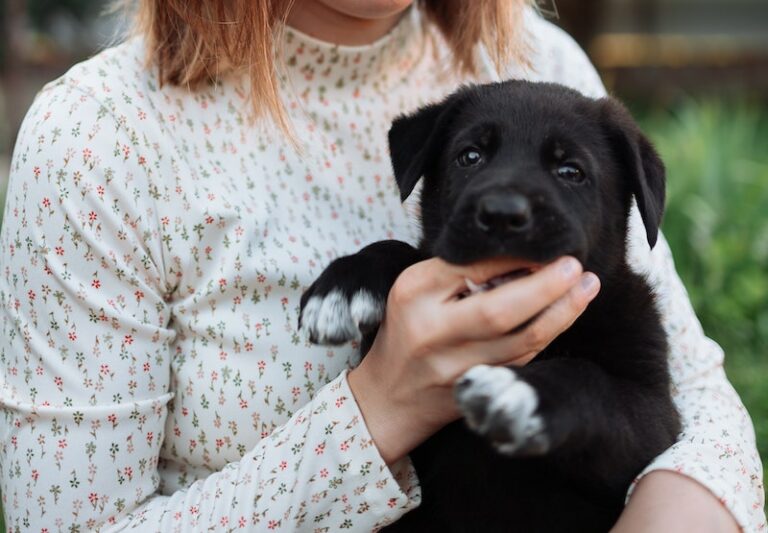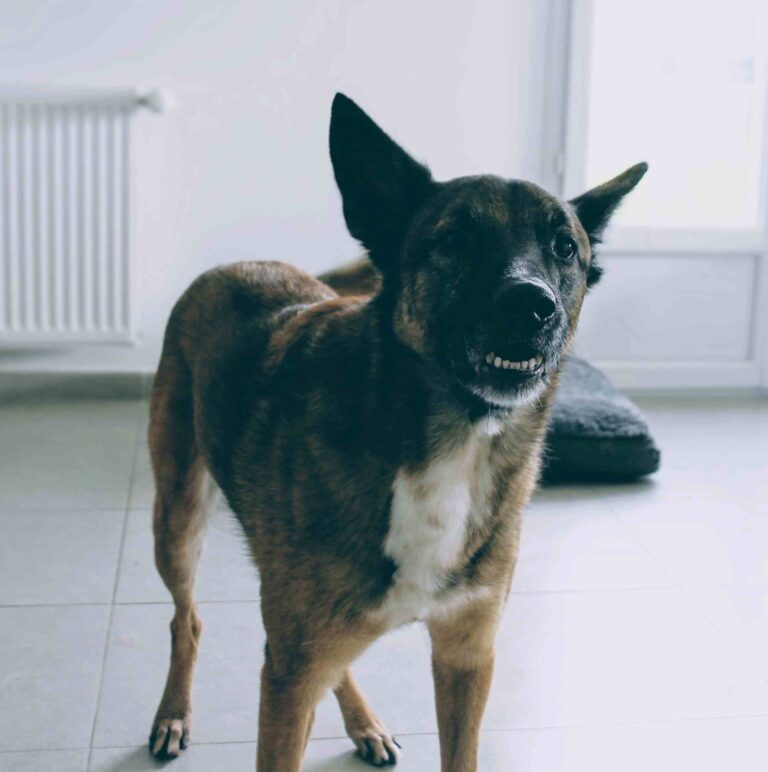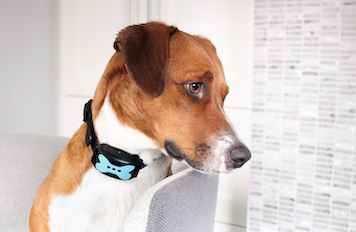What is Puppy Play-Biting?
Puppy play-biting is a developmentally appropriate and normal puppy behavior. I define puppy biting as a puppy’s teeth coming into contact with a person’s skin, the clothing they are wearing, another animal (usually a playmate), or something attached to another animal (i.e., leash, collar). The purpose of most puppy play-biting is social and serves, from the puppy’s standpoint, as a friendly, playful gesture.
Normal versus abnormal Puppy Play-Biting?
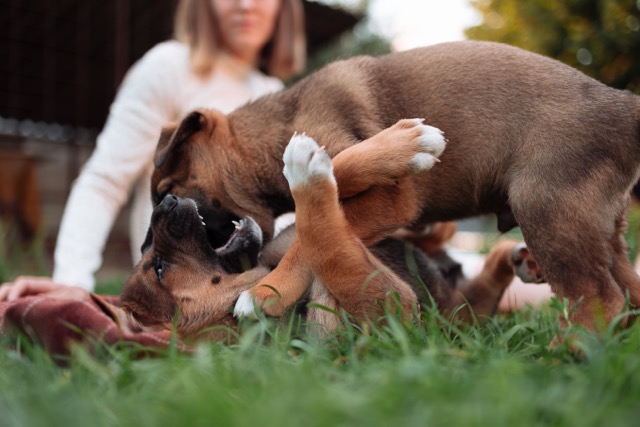
So, when does puppy play-biting become abnormal? What makes puppy play-biting abnormal, and how might an owner know when it becomes abnormal? Puppies intentionally have sharp teeth; naturally, it hurts when a puppy play-bites. Those sharp teeth likely have some evolutionary benefit and help shape bite inhibition (i.e., how hard is too hard to bite) in an adult dog. Most puppy play-biting comes from a gentle mouth but can still hurt, given the razor-like teeth. Despite those sharp teeth, these bites rarely result in broken skin for the average owner.
So, when does puppy biting become concerning or abnormal? I consider abnormal puppy play-biting to include biting that results in broken skin more than 2-3 times on an average person.
What is Bite Inhibition?
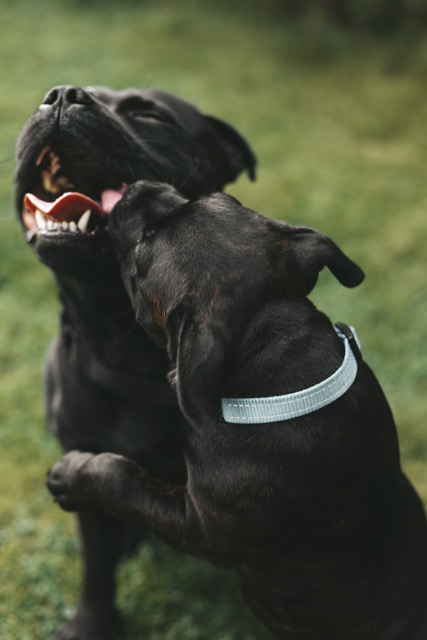
As I alluded to earlier, bite inhibition refers to the degree of the appropriate amount of pressure a dog or puppy uses with their mouth. In other words, how hard is too hard to bite? Knowing how much pressure is acceptable is one of the essential skills to learn as a puppy.
Why is Bite Inhibition important?
Bite inhibition is an important skill to learn as a puppy and to maintain into adulthood. A puppy’s acquisition of bite inhibition is particularly important because it is extraordinarily difficult to teach to an adult dog. If an adult dog lacks bite inhibition, they are at risk for biting and wounding a person or dog. A dog snapping turns into a puncture in someone’s arm. A growl, when being petted, moves quickly into a child’s face needing stitches. A scuffle at the dog park turns more severe as the other dog is wounded. In short, lacking bite inhibition puts the individual dog, their owners, and society at risk.
How do puppies learn Bite Inhibition?
Puppyhood is the time to teach bite inhibition, like many other social skills. Knowing this important social skill prevents more severe problem behaviors from developing. Bite inhibition is most easily and naturally taught with a puppy’s littermates and mother. With the proper environment, including plenty of space, access to resources, and, most importantly, time spent with their mother and siblings, puppies naturally acquire bite inhibition. The behavior is taught during their social interactions, from playing to eating and nearly everything in between; this critical skill is shaped constantly during those early weeks.
Where does the problem begin?
The problem begins when the environment does not support puppies naturally developing bite inhibition during those early weeks. Suppose the space is too confined (e.g., puppy mill crate) or an inadequate amount of time is spent with the litter and mother (i.e., separating puppies from their littermates before eight weeks of age). In that case, the likelihood of puppies developing proper bite inhibition decreases dramatically. Unfortunately, if not targeted early, an inappropriate early-rearing environment is difficult, if not seemingly impossible, to overcome. It is a critical time in a puppy’s life and should be considered carefully. For more information on an ideal puppy-rearing environment, check out my blog, “Bringing Puppy Home”.
What can I, as an owner, do?
Owners can start by supporting shelters or foster organizations that attempt to keep litters and mothers together during this developmental period. In some cases, those options do not exist, so rescue organizations become creative in fostering an appropriate puppy-rearing environment. We can support breeders who provide the ideal puppy-rearing environment from the start and who have responsible breeding practices. We can all stand against puppy mills and pet stores that sell puppies due the unethical breeding practices.
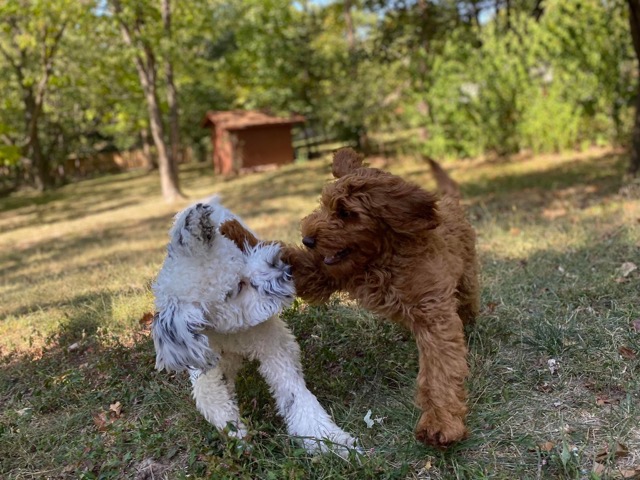
Once you have your puppy, it is important to continue proper socialization. If your puppy does lack proper bite inhibition, professional help is necessary, and it is crucial to get the right help early on. I strongly recommend against using pain, force, shock, or alpha rolls with any puppy, especially those that lack bite inhibition. In these cases, we do not have room for error. Contact your local office if you live within our service area. If you live outside our coverage area, I recommend using this guide to hire some professional help. With the right help, you can help your puppy overcome a less-than-ideal puppy-rearing environment and help get them on track for a successful life with you!
